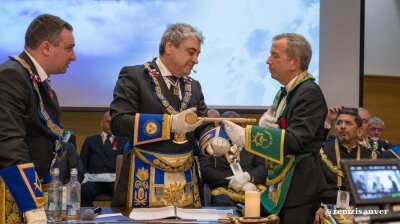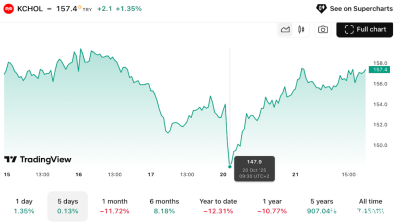Macedonia and Greece reached a historic deal to solve the 25-year long name dispute on June 12, agreeing on the new name for the tiny Balkan country — Republic of Northern Macedonia.
The Macedonian-Greek dispute, which emerged after Macedonia declared independence from former Yugoslavia back in 1991, concerns Greece’s objection to the use of the name Macedonia as it has a province in the north with the same name. This sparked fears that newly independent Macedonia might claim territories gained by Greece following the Second Balkan war in 1913. The Greek province of Macedonia spans most of the territories of the ancient kingdom of Macedon, and for more than five centuries it was part of the region known as Macedonia within the Ottoman Empire.
The dispute has blocked Macedonia’s Euro-Atlantic aspirations for decades, as Athens refused to allow its neighbour to progress towards EU or Nato membership before the issue was resolved.
Macedonian Prime Minister Zoran Zaev announced the deal at a news conference in Skopje attended by all his ministers, after he held his second phone conversation in two days with his Greek peer Alexis Tsipras.
“We reached an historic solution,” said Zaev, who was noticeably happy at the news conference, adding that the agreement will open chances for Macedonia to obtain a date to start long-awaited EU membership talks and to be invited to become a Nato member.
“With this agreement, European perspectives for the economic development of the country will be opened,” Zaev said.
“No FYROM anymore”
“There would be no FYROM anymore,” Zaev said referring to the current international name for Macedonia, Former Yugoslav Republic of Macedonia, which is used by Greece and several other countries which so far have not recognised Macedonia under its constitutional name.
Skopje accepted the Greek demand for erga omnes, the use of the new name not only internationally but also at home, a move that the opposition in the country fiercely opposes.
The new name, which in Macedonian language is Severna Makedonija, will be translated and will be incorporated into the Constitution with an amendment. The new name will make it clear that current Macedonia is not related to ancient Greece, allaying one of Athens’ chief concerns.
Zaev said that the signing of the agreement with Tsipras is expected to take place during the coming weekend or next Monday at the latest, most probably in Prespa, a Macedonian town near the Greek border.
After the signing, the Macedonian parliament will have to ratify the deal, following which Greece will send a letter to Nato to give the green light for its northern neighbour to be invited to become the 30th Alliance member, as well as to the European Council on the launch of EU accession talks.
Zaev expects that if the agreement is ratified in the parliament, Macedonia will obtain a date to start EU talks during the European Council meeting at the end of June, and will be invited to become a Nato member in July this year.
Zaev said that he will inform the main opposition VMRO-DPMNE party and President Gjorge Ivanov about the details of the agreement. However, both VMRO and the president previously said that they are against egra omnes for the new name and constitutional changes.
The Macedonian prime minister used the occasion to call on all political figures and the public to support the agreement as he said it “will guarantee stability” and will open many economic opportunities.
The people to decide
The citizens of Macedonia will have the final say in the process, as a “yes” or “no” referendum on the new agreement will be called in the autumn.
Following the referendum and the constitutional changes, Greece should ratify the deal at the end of the year.
Zaev added that the agreement will strengthen the Macedonian national identity. Under the deal, the nationality will be “Macedonian/citizen of Northern Macedonia” and the name of the language will remain “Macedonian” as well.
The implementation of the agreement will be conducted gradually in line with the opening of Macedonia’s EU’s negotiations chapters.
If the agreement is finalised over the weekend, the Macedonian PM will then send letters to over 190 countries that have recognised the Republic of Macedonia under its constitutional name informing them that from now on they should use the name Northern Macedonia in bilateral and international relations.
Greek media cited Tsipras as saying that “the name change of the Former Yugoslav Republic of Macedonia to "Republic of North Mecedonia" would be reflected both domestically and abroad.”
He said that the deal would allow a clear distinction between Greece’s province of Macedonia and the country.
Strong opposition
The reaction of the opposition and the public, in Macedonia in particular, will be decisive for the deal to be successful.
In the run up to the agreement, opposition parties in both countries staged huge protests against a potential deal, in Greece against the use of the term “Macedonia” and in Macedonia against the constitutional changes and erga omnes.
After Zaev’s announcement, VMRO-DPMNE leader Hristijan Mickoski said that the negotiations were held in secret and that the agreement is a “defeat” for Macedonia as Zaev has accepted all the Greek demands.
“This is an agreement for capitulation,” Mickoski said at the news conference.
Earlier on June 12, Greek Defense Minister Panos Kammenos, the leader of the nationalist Independent Greeks (ANEL), the junior partner in Greece’s left-led coalition government, reiterated that ANEL will not back any deal between Athens and Skopje on a name that contains the term “Macedonia”, but also indicated that he will not put the fragile coalition at risk either, Kathimerini reported.
Kammenos added the current deal between Tsipras and Zaev, “will never be approved” by a referendum in Greece’s northern neighbour or by the parliament, suggesting that a breakthrough on the decades-old dispute is still a long way off.
Greek Foreign Minister Nikos Kotzias said earlier that the Macedonian language "is not something that can be given or taken by Greece, because it is something that has already been given by the UN in 1977”.
The agreement followed a process of hard negotiations that lasted several months. The UN-mediated talks re-started after the Social Democrat-led government came to power at the end of May 2017, after being on hold during the rule of the nationalist, conservative VMRO-DPMNE government which took moves that infuriated the Greek authorities. One particularly contentious move was to name Skopje airport after Alexander the Great; the airport was then renamed International Airport Skopje by the Social Democrats to meet Greek demands.
News

Grand master mason arrested as part of Turkey’s Can Holding investigation
Second wave of detentions executed.

Istanbul prosecutors summon Koc official and Akfen boss in Imamoglu investigation
Word of move sparked volatility in stocks.

Ukrainian military strike for first time disrupts operations of Western oil majors
Drone attack damage caused to Russian gas processing plant forces scaling back of output at Kazakh field partly owned by Chevron, Shell and Eni.
_Foto2_Divulgação_Foresea_(1)_1761062969.jpg)
Petrobras secures controversial Amazon drilling licence ahead of COP30 climate summit
Brazil's Petrobras has obtained authorisation to drill an exploratory well near the mouth of the Amazon River, sparking fierce criticism from conservationists just weeks before Brazil hosts UN climate talks.
_1761050969.jpg)



